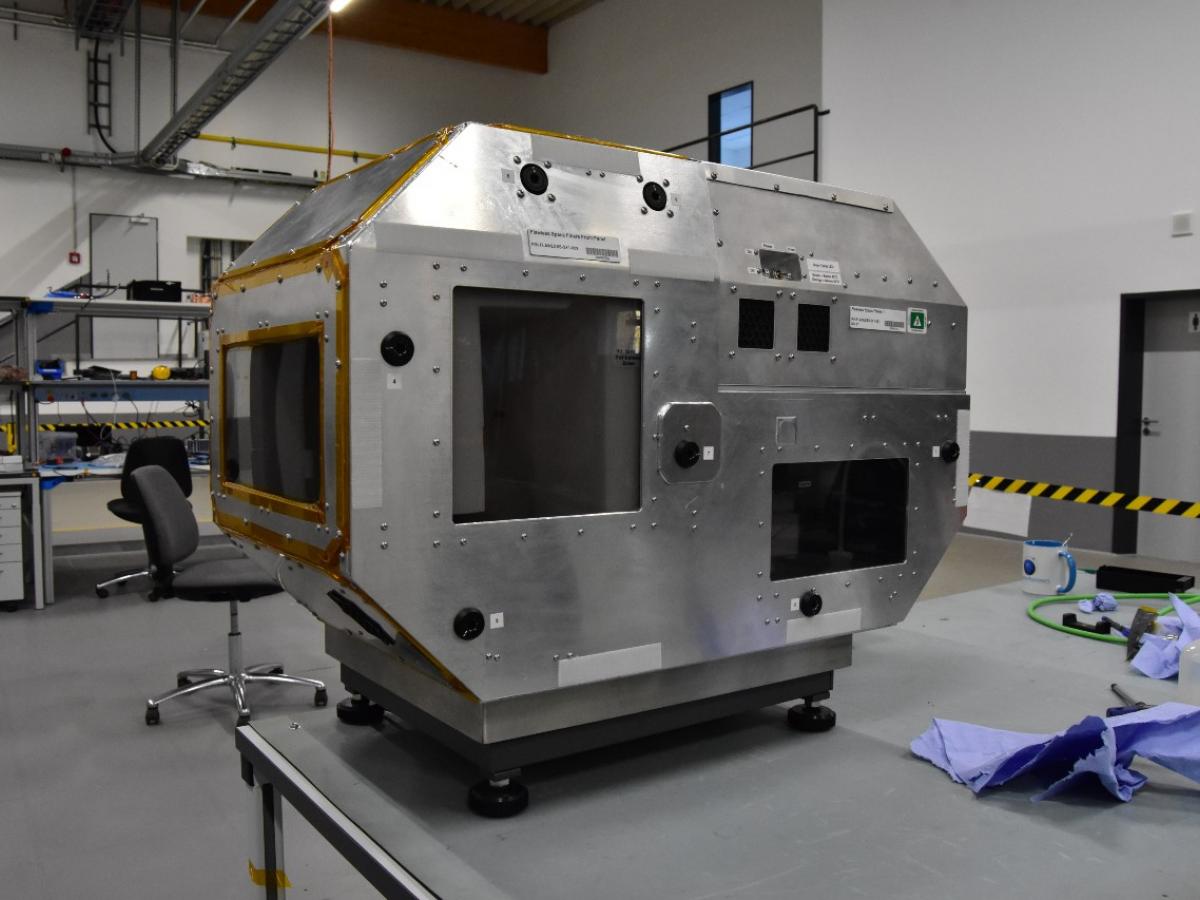Special glass rods manufactured at the University of Adelaide have been drawn into over eight km of optical fibre on the International Space Station (ISS).

Microgravity glove box at the Flawless Photonics facility prior to being shipped to NASA's facility. The fibre was drawn in the glove box on the ISS. Image: Flawless Photonics.
This major landmark in the development of the next generation of optical fibres for quantum communication is part of a strategic partnership between the University's Institute for Advanced Photonics (IPAS) and Commercial Partner Flawless Photonics Inc.
Australian Research Council, Industry Laureate Fellow, Professor Heike Ebendorff-Heidepriem, Deputy Director, IPAS and her Optofab team provided 20 special glass rods of ZBLAN, an exotic glass for ultra-low loss optical fibre. Flawless Photonics developed and built a miniature drawing tower for manufacturing optical fibre in space. This was sent into orbit on board a SpaceX rocket in Florida on 31 January and is currently installed on the ISS.
"For a ZBLAN fibre to deliver on its potential of being the most transparent material that can be manufactured, there are two obstacles that must be overcome. First gravity causes the ZBLAN to crystallise during the drawing process, and second, the purity of the glass must be enhanced by a factor of 1000 for it to fulfil its maximum potential," said Professor Ebendorff-Heidepriem.
Flawless Photonics worked on building a fibre drawing module that can operate in microgravity in space to overcome the first challenge, and Professor Ebendorff-Heidepriem and her team are working on the challenge of fabricating high-purity special ZBLAN glass rods to be drawn into fibre.
"We have a world-class facility for glass and optical fibre manufacturing at the University of Adelaide, making Optofab Adelaide one of the few such places in the world able to manufacture such material."
"This achievement follows over two years of dedicated efforts, overcoming challenges in developing, building, and testing the miniaturised fibre draw tower by Flawless Photonics."
Rob Loughan, CEO, Founder and Chairman of Flawless Photonics said: "I am grateful to the University of Adelaide and especially to Heike and her team at Optofab for their invaluable dedication of resources; without their support and our successful collaboration, we wouldn't have achieved this historic milestone."
Upon the return of these space-drawn fibres to Earth, Flawless Photonics and the team at IPAS will conduct various analyses and experiments to determine the properties of the space-drawn fibres relative to fibres drawn on Earth. will contribute to advance knowledge of space fibre fabrication and help to enhance the optimisation of the entire process to reach its full potential.
Drawing over eight kilometres of ZBLAN fibre on the ISS in just two weeks is a remarkable achievement. In comparison, previous similar efforts only managed to produce about 20 meters of fibre after a multitude of attempts.
The successful drawing of long continuous fibre opens possibilities for large-scale ZBLAN fibre production in space. This is particularly exciting as ZBLAN is known for its minimal signal loss, making it ideal for long-distance telecommunication applications.






